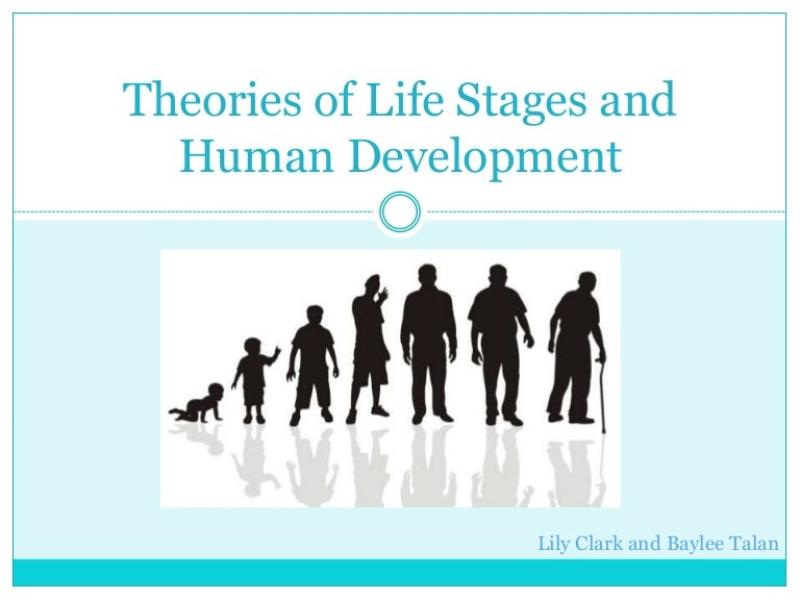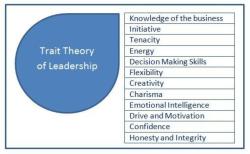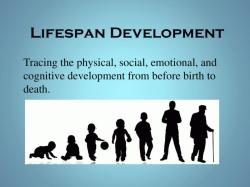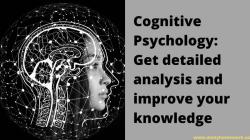What do developmental psychologists study over the lifespan?
Developmental psychologists study various aspects of human development across the lifespan, focusing on how individuals change and grow physically, cognitively, emotionally, and socially from conception to old age. Their research encompasses several key areas:
Prenatal Development:
- Conception to Birth: Study of physical and cognitive development in the womb, including prenatal influences on later development (e.g., maternal health, genetics).
Infancy and Early Childhood:
- Physical Development: Milestones in motor skills, sensory perception, and brain development.
- Cognitive Development: Exploration of language acquisition, memory, problem-solving, and early learning.
- Social and Emotional Development: Attachment, social interactions, emotional regulation, and the impact of parenting styles.
Middle Childhood:
- Cognitive Growth: Advancements in reasoning, logical thinking, and academic skills.
- Social and Emotional Skills: Development of friendships, peer relationships, empathy, and self-esteem.
Adolescence:
- Identity Formation: Exploration of self-identity, values, beliefs, and career aspirations.
- Puberty and Physical Changes: Study of biological changes, hormonal influences, and their impact on behavior.
- Risk-taking Behavior: Examination of risky behaviors, decision-making, and peer influence.
Early Adulthood:
- Transition to Adulthood: Study of life choices, education, career development, and forming intimate relationships.
- Continued Cognitive and Emotional Growth: Focus on higher education, career advancement, and emotional maturity.
Middle Adulthood:
- Career and Family: Research on career trajectories, family dynamics, and generativity.
- Cognitive Changes: Study of cognitive abilities and changes in memory, attention, and problem-solving.
Late Adulthood and Aging:
- Physical Changes: Investigation into aging, health issues, and the impact on daily living.
- Cognitive Decline and Preservation: Study of cognitive changes, memory decline, and strategies for maintaining cognitive function.
- Psychosocial Factors: Examination of social connections, well-being, and adjustment to life changes.
Cross-Cultural and Lifespan Perspectives:
- Cross-Cultural Comparisons: Understanding how cultural factors influence development.
- Longitudinal Studies: Tracking individuals over time to observe patterns and changes in development.
Developmental psychologists use various research methods, including longitudinal studies, experiments, observations, and surveys, to understand these developmental changes and their underlying mechanisms. Their work helps shape our understanding of human development and informs interventions to promote healthy development across the lifespan.
Developmental psychologists study a wide range of aspects of human development throughout the lifespan, encompassing physical, cognitive, social, emotional, and personality development. They explore how individuals change and grow from conception to death, examining the interplay of biological, psychological, social, and cultural factors that influence human development throughout life.
1. Specific aspects of human development studied by developmental psychologists:
Physical development: Developmental psychologists examine the physical changes that occur throughout life, from prenatal development to aging. They study growth patterns, motor development, sensory development, and the aging process, investigating the factors that influence physical health and well-being across the lifespan.
Cognitive development: Developmental psychologists explore how individuals' cognitive abilities, such as thinking, learning, and memory, develop over time. They study the acquisition of language, the development of problem-solving skills, and the changes in cognitive abilities that occur during childhood, adolescence, adulthood, and old age.
Social development: Developmental psychologists investigate how individuals' social skills, relationships, and emotional well-being develop throughout life. They study the formation of attachments, the development of social competence, the emergence of self-identity, and the changes in social interactions that occur across the lifespan.
Emotional development: Developmental psychologists explore how individuals' emotions, such as happiness, sadness, anger, and fear, develop over time. They study the expression and regulation of emotions, the development of empathy, and the changes in emotional experiences that occur during childhood, adolescence, adulthood, and old age.
Personality development: Developmental psychologists investigate how individuals' personality traits, such as introversion, extroversion, agreeableness, and conscientiousness, develop throughout life. They study the stability and change of personality traits, the influence of temperament and environment on personality, and the role of personality in shaping life outcomes.
2. Developmental stages or changes analyzed by psychologists across the lifespan:
Prenatal development: Developmental psychologists study the physical, cognitive, and social development that occurs in the womb. They examine the impact of maternal health and behavior on fetal development and the early foundations of cognitive and social abilities.
Infancy: Developmental psychologists explore the rapid physical, cognitive, social, and emotional growth that occurs during infancy. They study the development of motor skills, language acquisition, social interactions, and emotional regulation during this formative period.
Early childhood: Developmental psychologists investigate the continued development of cognitive, social, and emotional abilities during early childhood. They study the emergence of self-awareness, the development of friendships, and the acquisition of early literacy and numeracy skills.
Middle childhood: Developmental psychologists explore the changes that occur in cognitive, social, and emotional development during middle childhood. They study the development of abstract thinking, the growth of friendships and peer groups, and the emergence of self-esteem and self-identity.
Adolescence: Developmental psychologists investigate the physical, cognitive, social, and emotional changes that occur during adolescence. They study the onset of puberty, the development of formal operational thinking, the formation of romantic relationships, and the search for identity.
Emerging adulthood: Developmental psychologists explore the transition from adolescence to adulthood, a period of significant personal and social change. They study identity formation, career exploration, and the development of intimate relationships during this emerging stage of adulthood.
Middle adulthood: Developmental psychologists investigate the changes that occur in physical, cognitive, social, and emotional development during middle adulthood. They study the transitions in work and family life, the maintenance of relationships, and the potential for midlife crises and identity changes.
Late adulthood: Developmental psychologists explore the physical, cognitive, social, and emotional changes that occur during late adulthood. They study aging processes, the maintenance of cognitive and social functioning, and the challenges of aging and loss.
3. Areas of human growth and maturation investigated by developmental psychologists:
Physical growth: Developmental psychologists study the patterns of physical growth and development from conception to death. They examine factors such as height, weight, body composition, and motor skills, investigating the influence of genetics, nutrition, and environmental factors on physical growth.
Sensory development: Developmental psychologists explore the development of the senses, including vision, hearing, touch, taste, and smell. They study how sensory information is processed and integrated, examining the impact of sensory experiences on cognitive and behavioral development.
Language development: Developmental psychologists investigate the acquisition of language, including the development of vocabulary, grammar, and communication skills. They study the role of social interaction, environmental factors, and innate predispositions in language acquisition.
Cognitive development: Developmental psychologists explore the development of cognitive abilities, such as thinking, learning, memory, and problem-solving. They study the stages of cognitive development, the influence of experience and education, and the role of cognitive skills in academic and social success.
Social development: Developmental psychologists investigate the development of social skills, relationships, and emotional well-being. They study the formation of attachments













